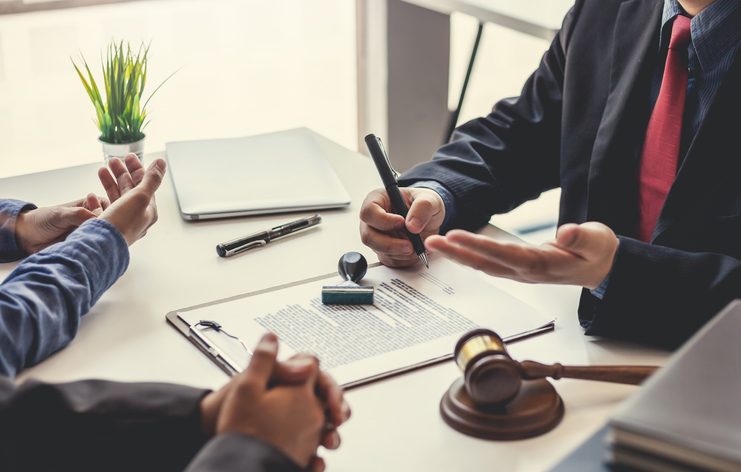Stages Of A Personal Injury Case

Experiencing a motorcycle accident can leave you wondering what your options are. If you incurred injuries, you might be suffering, unable to work, and facing mounting medical bills. Or worse yet, a motorcycle accident could have resulted in wrongful death. A personal injury case is often the best route to take to receive compensation for damages, lost income, and holding the liable party responsible. However, many people may be concerned with the magnitude and demands of a personal injury case.
To help alleviate these concerns, 911 Biker Law reviews the stages of a personal injury case. While it's important to remember that each case is unique, understanding these basic phases can help you know what to expect.
Schedule a case evaluation today with our Orlando motorcycle accident attorneys for specific information about your case.
Lawyer Consultation
Case consultations are typically free, so there is no risk, and we highly encourage anyone considering legal recourse to schedule a consultation with a reputable law firm in Orlando. The initial consultation with an accident attorney allows you and the attorney to discuss your case and determine what, if any, compensation you may be eligible to receive.
Come prepared to discuss the details of your motorcycle accident and the resulting injuries. Bring any supporting documentation and relevant paperwork from your insurance company, doctor, and police reports, if available. A consultation is also the optimal time for you to ask questions regarding attorney fees, experience, and any additional information that will help you to determine if the personal injury lawyer is right for your case.
Case Investigation
For your motorcycle attorney to do their job to the best of their ability, you must be completely honest about every aspect of your accident and injuries. Once you decide on the right motorcycle injury attorney, they can begin gathering evidence for your case. This evidence might include police reports, accident scene photos, vehicle data, statements from accident witnesses, video surveillance if available, medical records, and more.
Your Lawyer May File A Demand
Depending on the extent of the case, an attorney can settle your lawsuit outside of court. They will examine every aspect of your case and provide options for moving the case forward. This stage usually comes after medical treatment has concluded and your treating physician has determined you've reached maximum medical improvement (MMI). MMI indicates that you've recovered as much as can be expected and can help determine the amount of compensation you may be entitled to. If your attorney determines that your case may be settled outside of court, they will submit a demand to the opposing party. If the other side does not meet this demand, the case will move forward into the litigation phase.
File Court Documents
Once court documents have been filed, the case is now official and must be pursued within a strict time frame. These technical documents outline the defendant (who you're suing), the plaintiff (you), a complaint covering the nature of your accident and injuries, and the legal basis for holding the defendant liable. The documentation will also address the compensation you're seeking to cover damages. The defendant will then file a response to the complaint. Pretrial procedures may differ for out-of-state bikers, but once this phase commences, you can expect to wait anywhere from one to two years before your case goes to trial.
Discovery
Once documentation has been filed by both sides, each side will investigate the other's legal claim and defenses. As part of the discovery phase, either party may submit questions for the other, request documents, depose witnesses, and more. At this stage, 911 Biker Law will conduct an extensive investigation to ensure that every aspect of your case is addressed. This part typically takes anywhere from six months to a year to allow ample opportunity for either side to address any concerns.
Mediation & Negotiation
An important step in any personal injury case, meditation and negotiation can keep your case from being drawn out. During this informal proceeding, both parties will try to settle without going to court. Depending on the case, mediation may happen between the lawyers or be overseen by a neutral mediator, typically a judge. However, it is important to understand that not all cases can be mediated. Unless suggested otherwise by your personal injury lawyers, you should still expect that your case will go to trial.
Trial
If mediation is not successful, your case will proceed to court. Each side will present their case and evidence, usually in front of a jury. Your case will also be evaluated to determine liability and compensation amounts. Trial timelines can be anywhere from a day to several weeks. Additionally, if your trial is delayed, don't assume the worst. This often happens and does not indicate anything unfavorable.
Hopefully, the outcome of your trial is favorable. However, either side can appeal the court's decision. If you decide to appeal, your attorney will be able to best guide you as to how to proceed next.


